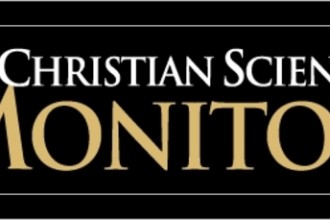TexasinAfrica recently pointed me to a poem I hadn’t seen before, and I basically think it should be required reading for anyone in aid, development or journalism that writes about either of those (and so many other) things. The poem is by Henry Labouchère, at times a journalist, at times an art critic, at times an MP, always a Brit. He published “The Brown Man’s Burden,” a parody on Kipling’s poem in the negative, in his journal Truth in 1899.
After scouring the Internet, I have concluded it’s pretty much not in print, and I’m not infringing on any copyright rules by posting it in total from here (or if I am, so are several others). I also decided that a guy described by the Twickenham Museum as “a radical, an agnostic and a rebel” who “took several gap years off in wandering around Latin America [and] join[ing] a circus”* probably wouldn’t mind:
My favorite stanza’s the third, but the comment section is open for voting.
The Brown Man’s Burden
Pile on the brown man’s burden
To gratify your greed;
Go, clear away the “niggers”
Who progress would impede;
Be very stern, for truly
‘Tis useless to be mild
With new-caught, sullen peoples,
Half devil and half child.
Pile on the brown man’s burden;
And, if ye rouse his hate,
Meet his old-fashioned reasons
With Maxims up to date.
With shells and dumdum bullets
A hundred times made plain
The brown man’s loss must ever
Imply the white man’s gain.
Pile on the brown man’s burden,
compel him to be free;
Let all your manifestoes
Reek with philanthropy.
And if with heathen folly
He dares your will dispute,
Then, in the name of freedom,
Don’t hesitate to shoot.
Pile on the brown man’s burden,
And if his cry be sore,
That surely need not irk you–
Ye’ve driven slaves before.
Seize on his ports and pastures,
The fields his people tread;
Go make from them your living,
And mark them with his dead.
Pile on the brown man’s burden,
And through the world proclaim
That ye are Freedom’s agent–
There’s no more paying game!
And, should your own past history
Straight in your teeth be thrown,
Retort that independence
Is good for whites alone.
—
* Bonus random detail: The Twickenham Museum, which shares a writing sensibility much closer to Kipling’s than LaBouchere’s, notes that when Buffalo Bill’s Wild Circus came to London, Monsieur Henry “invited all the Indians to lunch in Twickenham” (in a section called, “Braves, squaws and babies entertained grandly”). I spent my early years, like the ones where you learn to talk, in Twickenham, and now I have images of the ghosts of American Indians having a reverse-Thanksgiving on the grounds of what became my family’s neighborhood pub…
PS: Just to be super-absolutely clear — this poem is a work of satire.





Outstanding, and thanks for the mention. I love the background info and will be sure to work the circus angle into my next colonialism lecture.
My vote’s for the third stanza as well, although I have to note that the use of “Maxim” in the second is nothing short of brilliant.